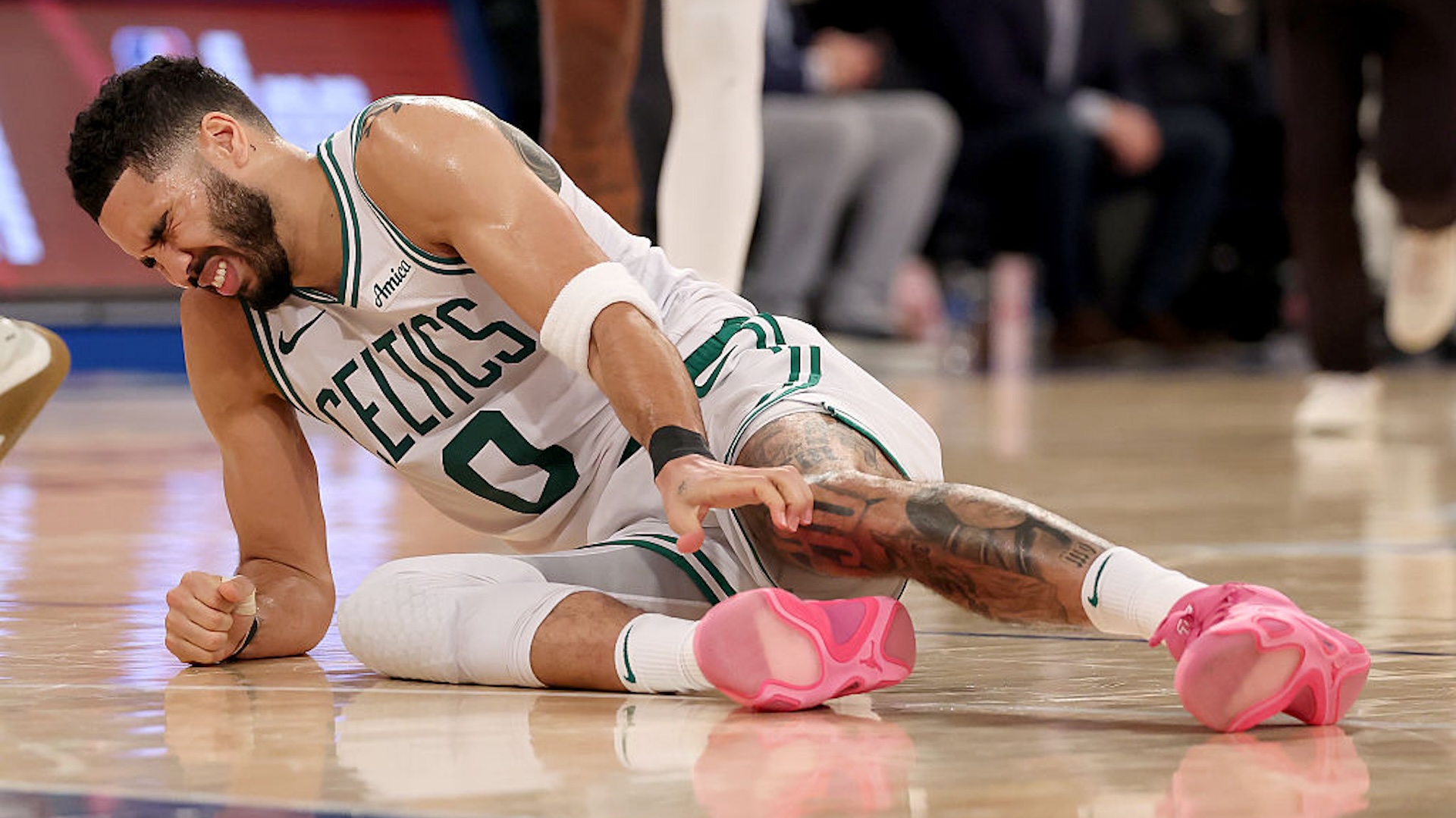With just over three minutes left in Game 4 of the second-round series between the Celtics and Knicks, it was feeling pretty over for Boston, who were trailing by seven and facing a 3-1 series deficit. And then a few seconds later, it was really over.
We are still awaiting official word on what kind of injury Jayson Tatum suffered when he made a move for a loose ball, crumpled to the floor, and then screamed in agony while grabbing the back of his right ankle. We have all seen this particular non-contact injury enough to understand that what happened to Tatum is not good, and that a torn Achilles would keep him off the floor for at least a year.
Up until he was carried off the floor, Tatum was having one of his signature playoff performances, having scored 42 points to go along with eight rebounds, four assists, and four steals. It was the kind of game that could make you believe that the Celtics, even with Game 4 slipping away from them, still had a chance in the series. Any team with a player who can do what Tatum was doing always has a chance—to win a game, a series, a title.
A star suffering a serious injury is always destabilizing, but the circumstances around this one set up its consequences to be particularly severe. Even before Tatum went down, the upcoming offseason was going to be uniquely fraught for Boston. The Celtics will head into the summer preparing to become the first franchise to really feel the most punishing effects of the new CBA. Because of the way the new tax apron system works, Boston will be hit with luxury tax payments that are greater the team's entire payroll. According to Spotrac, the Celtics' estimated tax bill will jump from $53 million this season to $238 million in the next. As things currently stand, this will be the first team in NBA history to spend $500 million on its roster.
That's a number that would have likely made Boston's incoming ownership group queasy even if Tatum were healthy and the team was locked into a few more years of title contention. Now, those owners will have to decide if they want to go into next season with a roster that is both stuck in stasis and historically expensive. It's entirely possible that by the time Tatum is able to return to the floor, he will be joining a cheaper and diminished roster.
Here we find yet another way in which the artificial anti-labor policies that plague most American professional sports turns the screw on players. Tatum lost his shot at this season's title and most likely the next year of his career, and now some old rich men will have the opportunity to throw up their hands, blame the punitive CBA, and strip the roster in Tatum's absence. The insult may end up hurting as much as the injury.






